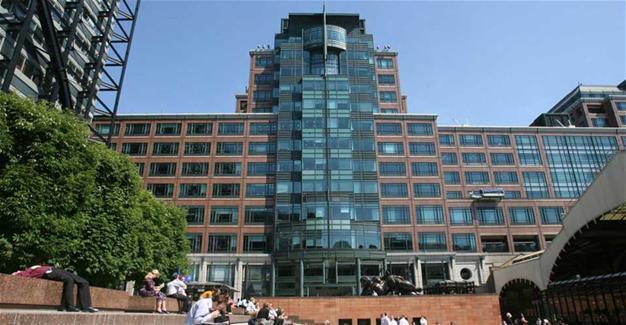EBRD expects slowdown in Turkey’s growth amid security, geopolitical risks
ISTANBUL

Turkey is expected to see a slowdown in growth in 2017, partly reflecting security and geopolitical risks that have also led to a downward revision in European Bank for Reconstruction and Development (EBRD) forecasts for countries in the southern and eastern Mediterranean.
In contrast, economic growth is expected to pick up across other EBRD regions this year and next year, according to the bank’s latest Regional Economic Prospects report, published on May 10.
The EBRD said Turkey’s growth is projected to moderate further to 2.6 percent in 2017, reflecting worsening investor sentiment compounded by the downgrade of Turkey’s sovereign rating to sub-investment-grade level.
A pick-up to 3 percent is expected in 2018.
The Turkish economy has slowed significantly since 2015, with growth halving to 2.9 percent in 2016 due to a sharp fall in tourism receipts, Russian sanctions, and geopolitical tensions in the Middle East, noted the EBRD, adding that weak consumption and investment following the attempted military coup in July 2016 compounded these earlier problems.
Major risks across regionThe report said the latest forecasts were subject to major risks related to geopolitical tensions in and around the EBRD region, set against a backdrop of increased political uncertainty.
“The economic outlook for the region remains materially affected by terrorism, geopolitical tensions and the refugee crisis. Over the last six months Egypt, Jordan, Russia and Turkey saw several terrorist attacks while Syria remains in a humanitarian crisis,” stated the report.
In the southern and eastern Mediterranean region (SEMED), projected growth in 2017 has been revised downwards slightly, to 3.7 percent, owing to a worse-than-expected performance across all the countries of the region, but with national variations, read the statement.
Average growth in SEMED is expected to reach 4.1 percent in 2018, on the back of a rebound in agricultural output in both Morocco and Tunisia, higher domestic demand in Jordan driven by the refugee crisis, and an improvement in competitiveness and the business climate in Egypt.
Growth in Central Asia in 2017 is expected to rise slightly to 3.8 percent, compared with 3.5 percent in 2016, reflecting the improved external environment. Commodity-exporting countries will benefit from the pick-up in oil prices and other key commodities, while countries with strong economic links with Russia are expected to be supported by a rebound in remittances, leading to a recovery in domestic demand.
In 2018 real GDP growth in the region is forecast to increase to 4.6 percent, driven mainly by a stronger performance in commodity-exporting countries.
Growth in Eastern Europe and the Caucasus as a whole is expected to turn positive in 2017 after last year’s stagnation. However, both Azerbaijan and Belarus are projected to remain in recession. A gradual recovery in the region is set to continue in 2018.
Economic growth is expected to pick up across the EBRD regions this year and next, supported by higher oil prices and Russia’s recovery from recession, according to the EBRD’s latest report.
On average, economic growth in the 36 EBRD countries of operations is seen rising to 2.4 percent in 2017 and to 2.8 percent in 2018, compared with expansion of 1.8 percent last year.
 Turkey is expected to see a slowdown in growth in 2017, partly reflecting security and geopolitical risks that have also led to a downward revision in European Bank for Reconstruction and Development (EBRD) forecasts for countries in the southern and eastern Mediterranean.
Turkey is expected to see a slowdown in growth in 2017, partly reflecting security and geopolitical risks that have also led to a downward revision in European Bank for Reconstruction and Development (EBRD) forecasts for countries in the southern and eastern Mediterranean.